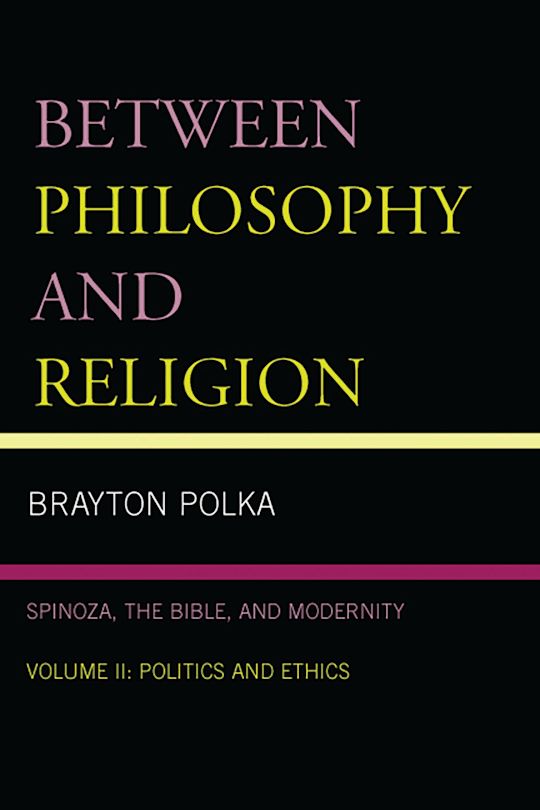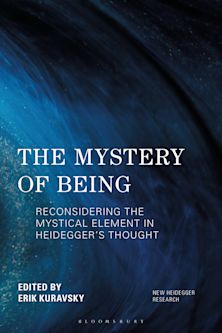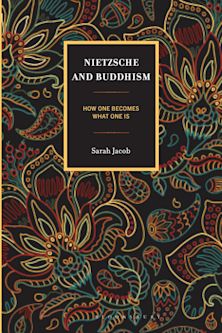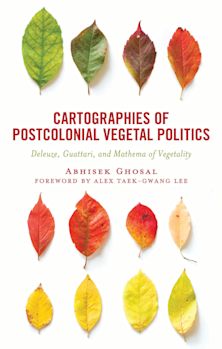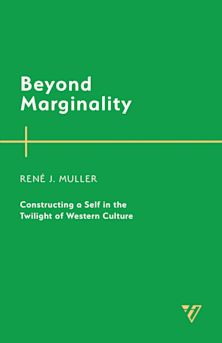- Home
- ACADEMIC
- Philosophy
- Philosophy - Other
- Between Philosophy and Religion, Vol. II
This product is usually dispatched within 3 days
- Delivery and returns info
-
Free US delivery on orders $35 or over
You must sign in to add this item to your wishlist. Please sign in or create an account
Description
In Between Philosophy and Religion Volumes I and II, Brayton Polka examines Spinoza's three major works--on religion, politics, and ethics--in order to show that his thought is at once biblical and modern. Polka argues that Spinoza is biblical only insofar as he is understood to be one of the great philosophers of modernity and that he is modern only when it is understood that he is unique in making the interpretation of the Bible central to philosophy and philosophy central to the interpretation of the Bible. This book and its companion volume are essential reading for any scholar of Spinoza.
Table of Contents
Chapter 2 Between Politics and Ethics: The Relationship between Democratic Freedom and Eternal Freedom
Chapter 3 Conclusion: Modernity in Light of Spinoza
Product details
| Published | Aug 04 2010 |
|---|---|
| Format | Paperback |
| Edition | 2nd |
| Extent | 352 |
| ISBN | 9780739116043 |
| Imprint | Lexington Books |
| Dimensions | 9 x 6 inches |
| Publisher | Bloomsbury Publishing |
About the contributors
Reviews
-
Recognizing Spinoza's philosophy as distinctively unique, Polka offers an original approach. . . . The central tenet of Polka's apprach is his provocative but at the same time polemically engaging proposition that Spinozacan only be adequately understoodif he is recognized as both resolutely modern and biblical at the same time. The merit of Polka's study lies in its highlighting of this structure of mutually illuminating satellite texts without stipulating a doctrinaire core. Rather, Polka's approach brings out the philosophically critical impetus of Spinoza's thought that resists doctrinaire reduction and grasps its subject matter by the particular method and type of argumentation it requires.
H-Net: Humanities and Social Science Reviews Online
-
Like his earlier Hermeneutics and Ontology, Brayton Polka's [Between Philosophy and Religion] is a work as eloquent as it is erudite. No reader could fail to learn from this monumental study a great deal about the relations between democratic freedom and eternal freedom, between consciousness and desire, and indeed what it is to be modern.
Kevin Hart, University of Notre Dame
-
Recognizing Spinoza's philosophy as distinctively unique, Polka offers an original approach. . . . The central tenet of Polka's apprach is his provocative but at the same time polemically engaging proposition that Spinozacan only be adequately understood if he is recognized as both resolutely modern and biblical at the same time. The merit of Polka's study lies in its highlighting of this structure of mutually illuminating satellite texts without stipulating a doctrinaire core. Rather, Polka's approach brings out the philosophically critical impetus of Spinoza's thought that resists doctrinaire reduction and grasps its subject matter by the particular method and type of argumentation it requires.
H-Net: Humanities and Social Science Reviews Online








